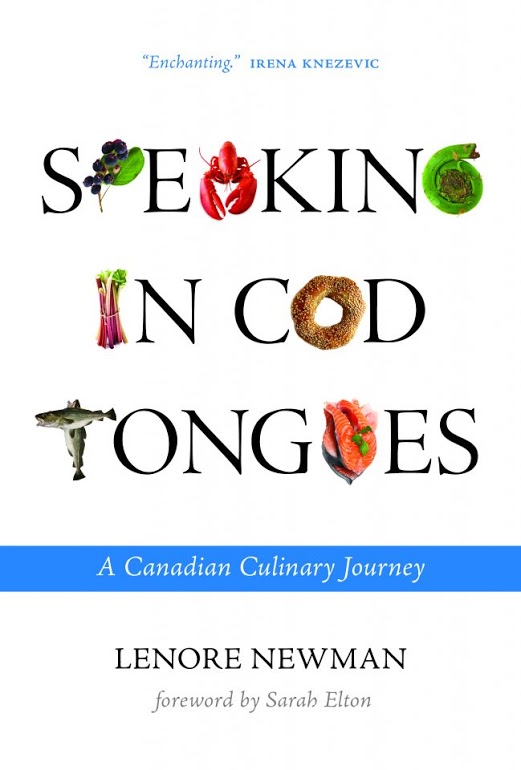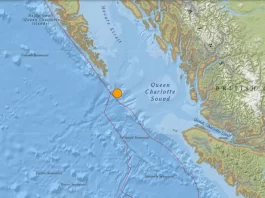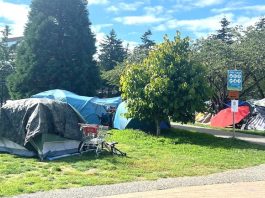Canadian cuisine, how does one describe it? Of course there are the maple stereotypes and defending cheese curds and gravy on potatoes as a meal. What more is there to Canada’s food than what is already considered “American”?
Dr. Lenore Newman is UFV’s Canada Research Chair in Food Security and Environment as well as an associate professor in geography. In her new book Speaking in Cod Tongues, she explores Canada’s culinary identity and journeyed all across Canada to do it.
Here she talks about her experiences and quest to experience and know Canadian cuisine.
You recently wrote a new book, Speaking in Cod Tongues, could you tell me a bit about it?
Well, when I first took the position of Chair here at UFV, I wanted to produce something that was academic but would also be of interest to the community and the wider public. I decided to write up my results as a book on Canadian food. And that is where Speaking in Cod Tongues came from. The question of what is Canadian food had interested me, as there was no definitive answer at the time; I thought I would go and look for myself.
You embarked on a five-year quest to explore Canadian cuisine, what was that like?
It was great fun. It was a number of trips over several years and in all seasons because I wanted to travel in the winter as well, to get an idea of how Canada works in the winter. I was cheating a bit because I had lived in Ontario for 13 years, so I knew the mid part of the country fairly well. But it was a chance to see the whole country. Newfoundland and the Maritimes were new for me and they were amazing. I got up to Labrador and Quebec and to the Northwest Territories too. It was also a chance to get to know the foods of the prairies and their producers.
It was a lot of driving. My goal was to get out of the cities, so I drove 30-40,000 kilometers. I got to pick berries off in the middle of the tundra and eat in some of the best restaurants in the country, and meet some of the more interesting producers, farmers, and fisherfolk, those who collect wild food.
Was there anything on your journey for this book that really stood out to you?
I was really struck by the passion everyone puts into their cuisine. All these restaurateurs, farmers, fishermen, etc., they put so much passion into their food, and often it is a very perilous business. It’s dangerous, the money is not very good, restauranting is a terrifying business with huge money flows. You are always on the edge of going bankrupt. But they put so much into it, they put their whole life into it. And it really made me realize that to say there isn’t true Canadian cuisine is disrespectful to those people. I think we have to realize we have a cuisine and it’s amazing and we have to stand by these people who have put so much into it. They had so much time for me. That’s another thing, they love to talk about their food and that is what really stood out for me. It was across the country.
Were the restaurants you visited aware of your project and what you were doing?
Sometimes. I did interview restaurateurs about what they were trying to do, how they saw our country’s cuisine and how they made it theirs. But sometimes I was just passing through and getting to observe life in these smaller communities as an outsider. What was interesting is that I was a tourist in places that often don’t see outsiders, for example out on Grand Manan, which is an island in the middle of the Bay of Fundy, outsiders out there are out of season, so they would come and talk to me and ask me what I was doing there. I met a lot of interesting people.
You mentioned in your book that Canadians’ love for wild foods such as salmon and berries are what make our foods culturally different and unique. Can you expand on that?
I discovered a few things, actually, that make our cuisine our own. We use more wild food than anyone else. And that is right across the country. From fish, to wild game, rice, mushrooms, berries. And I am still experiencing that. I have been doing a lot of radio call-in shows and a lot of older men are calling in to tell me about what they do with their game, they hunt elk or wild sheep and they call in to share their family recipes. And with that goes seasonality, we love eating food in season. A good example from Abbotsford is berries, people go to their favourite berry stand and wait for the berries. It is very typical of Canadian cuisine to eat the freshest and seasoned foods.
What is your ideal Canadian meal, after all the research you have done?
It may betray my roots as a fisherman’s daughter, but good old roast salmon, blueberry pie, and some local greens. That is pretty ideal for me and maybe some Ontario wine and some Québécois dessert, they do desserts really well.
After this what is next for you?
I have a couple exciting things, new projects. One of them is looking at how foods are being endangered by environmental change — that arose out of this project. I was frightened by how many of Canada’s iconic foods are threatened in various ways. I’ve got a project to go and look at the foods of the world that are most threatened, or have disappeared. I am beginning another five-year project to circle the Pacific Rim and look at how Pacific Rim cuisine is changing and emerging as all these countries interact.
Rachel is working towards a BA with a concentration in English and Theatre. She has been employed at The Cascade since Fall 2021 as a Staff Writer and a Jr. News Editor. Currently, she is the sectional News Editor and enjoys meeting and interviewing people as well as taking long walks in nature. Rachel also likes to stay up to date on the latest trends and informs students through her fashion column entitled Campus Fashion.




